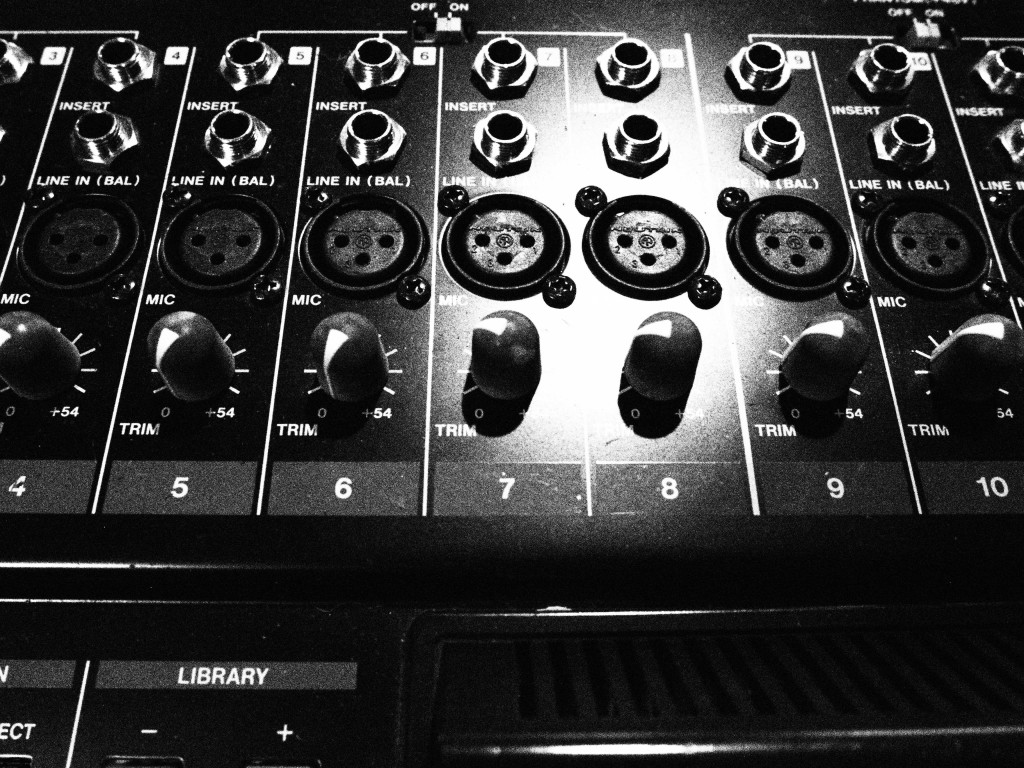It definitely isn’t “Get control over everything.”
Please Remember:
The opinions expressed are mine only. These opinions do not necessarily reflect anybody else’s opinions. I do not own, operate, manage, or represent any band, venue, or company that I talk about, unless explicitly noted.

 Want to use this image for something else? Great! Click it for the link to a high-res or resolution-independent version.
Want to use this image for something else? Great! Click it for the link to a high-res or resolution-independent version.Well, I’ve done it. I’ve gone and had my first, real disagreement on Twitter. I may be a real boy now!
The (actually very mild) dust-up occurred between myself and another engineer. He was miffed at my “Pre or Post EQ” article, because – for him – my approach was far, far too passive. His response was that the first rule of FOH is to get control over the show.
Well, I’m sorry, but I can’t agree.
First of all, Rule #1 for all audio engineering is, “First, do no harm.” This job is very much like medicine: Shut your trap, listen to the musicians, try to get to the root of the problem, treat people like human beings, and don’t rush to a diagnosis.
Second: Not everybody is like this, but the process of getting in control over everything is basically installing a dictatorship. Not everybody is on board, and they may swallow their tongues for a while, but a rebellion will brew.
…and, if they aren’t afraid of you, folks may do nasty things to you out of spite. Does that sound like a fun show? That sounds like a TERRIBLE show, one that flat-out sucks for you, the players, and the audience.
I’ve said this before, and I’ll say it again. Being an audio human for live shows has basically nothing to do with molding every second of the proceedings to your will. That kind of thing can (and does) happen, but I don’t see it as the normative case for folks doing shows where muting the PA doesn’t totally mute the band. That’s the vast majority of us, by the way. Rather, this gig is a sort of collaborative Judo, wherein we utilize the momentum of the band to transfer the best possible show to the audience. Forcing your way to maximum control is the opposite of that – I’ve seen it in action. Wrestling control of the show away from the musicians has an overwhelming tendency to KILL their momentum.
The musicians’ momentum is what the audience came to see. In the grand scheme of things, nobody truly cares about how “fat and punchy” the drums are. Nobody truly cares about how radio-ready the vocals seem to sound. If the show momentum is off, that will be the thing that the patrons notice. They’ll be impressed by the mixing for a few moments, but they didn’t buy those tickets for that purpose.
Now, if you can get complete control and also maintain musician momentum, I’m all for it. I’m not saying you shouldn’t have full control if that’s the natural state of the show. If it’s not the natural state, though, you’re wasting a ton of energy (literally and figuratively) by swimming against the current.
Folks, it’s not “our” show. It’s the band’s show, and we are helping with it. We do get partial credit, and we may get an outsize portion of the blame, but – deep breaths, people! I’ve mixed plenty of shows that, to my mind, sounded rather poor. Some of them, in the opinions of audience members, were my fault when they really weren’t. Some of them, also in the opinions of audience members, sounded absolutely stellar (while I was grinding my teeth into fine powder over how terrible everything was). It’s okay! There are people who think I’m an idiot, but there are enough people who think the opposite that I’m not worried.
If something’s really amiss, comment on it, but don’t force your way into the captain’s chair. Interestingly, you’re far more likely to be promoted to that seat if you demonstrate an ability to collaborate with what’s already going on.